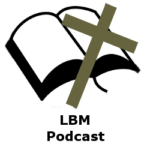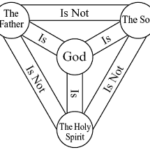
In this episode of the LBM Podcast we have a guest (Carl Albert) associated with the Israel Doctrine (loosely affiliated with the Hebrew Israelite movement), join us for a discussion on the ontology of the God of the Bible. Jason defends the orthodox Christian view of the Trinity and Carl promotes his self proclaimed henotheistic view of the Godhead. Carl’s view might more accurately be described as ditheism instead of henotheism as he believes that there are two ontologically identical yet separate beings of God that are worthy of worship. He believes the Bible teaches there are two Gods. The discussion goes into the Biblical texts and into the distinction between being and person. The deity of the Holy Spirit is then discussed, Jason takes the position that the Holy Spirit is the 3rd person within the one being of God and Carl takes the position that the Holy Spirit is a created being specifically the angel Gabriel.
Links:
Carl Albert’s YouTube Channel
Carl Albert’s Beliefs
Logical Belief Ministries Statement of Faith
Video Podcast:
Audio Podcast:



